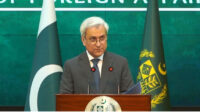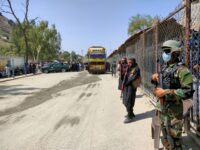A common narrative prevails in Pakistan, which is regarding addressing and resolving human security concerns through the establishment of new provinces. This is because, Pakistan is an exceedingly populated multi-ethnic and cultural land, drenched in intra-state conflicts penetrating towards socio-economic disparities. Pakistan emerged as a state in 1947, with a federal constituency of five provinces, namely: East Bengal, West Punjab, Balochistan, Sind and the North-West Frontier Province (NWFP). Unfortunately, Bangladesh detached from Pakistan in 1971. Henceforth, at present, due to the recent provincial status of Gilgit-Baltistan, Pakistan consists of five provinces, and each province is administrated through their respective provincial assemblies and governors. Adding on, each province compromises of multiple ethnicities, languages, culture, social norms, and traditions. Moreover, diverse religious and affiliations and lifestyles acclimate each province.
Pakistan is in dire need of new provinces due to the embodiment of unequitable division of resources within provinces. It is claimed that the unscrupulous division is a subsequent of large areas and populations being governed under a singular provincial government, leading to ineffective administration. To make the argument clear, some regions within each province entertain to adequate human security resources; while, erstwhile regions undergo food insecurity, lack of job opportunities, poor health care, unhygienic conditions, absence of personal security, reduced political representation and other factors leading to human insecurity. Hence, within each province of Pakistan, variations in socio-economic conditions and level of development can be observed. Leading to the conclusion that, levels of prosperity and growth are irregular within each province, and there is not an equitable distribution of resources. Thus, the creation of new provinces with limited population is necessary to ensure the effective administration of resources.
The ineffective administration and economic variations in provinces has correspondingly resulted in intra state ethnic conflicts too. This is because, unfortunately, the disparities have been linked to ethnic factors through external propaganda; suggesting how, certain ethnicities are privileged under provincial governments and devour the utmost resources. In the province of Punjab, central Punjabis are accused of accessing exceeding resources by the Saraiki and Southern Punjabi population. Similarly, in Sindh, the Sindhi community indicts the Mohajir’s of retrieving more employment opportunities and resources for personal accomplishments. In fact, this conflict also resulted in the insurgent movement known as the Mohajir Qaumi Movement (MQM). In the province of Balochistan, the Pashtun and Hazara community charge the Blochis for command over resources. Lastly, the in Khyber Pakhtunkhwa, the Hazara division feels dominated by the Pashtun belt. Thus, the existence of ethnic conflicts due to the variations is economic progression highlight the need to generate new provinces.
In ideal circumstances, the creation of new provinces should be with respect to ethnic communities. For example, the province of Punjab should be integrated into provinces for Northern Punjabis, Southern Punjabis, Central Punjabis, Pothwari’s, and Sairiaki’s. With respect to Sindh, provinces with respect to Sindhi and Mohajir regions can be allotted. Similarly, in the case of Khyber Pakhtunkhwa, the Hazara region should be disposed to their own province, and in Balochistan, the Pashtun and Hazara community should be stipulated with their personal autonomous provinces. In this manner, administrative units based on limited population will generate, and the ethnic concerns shall be addressed too. As a result, instead of indulgent in conflicts, all provinces shall utilize their strengths to take substantial steps towards addressing the human security apprehensions and their resolution.
It is no doubt that the true reason behind socio-economic disparities within provinces is a subsequent of state institutional failure, and ethnic differences hold little weightage. As, the state carries responsibility for equitable distribution of resources, in order to equally develop all regions of the country. Meaning, the state is bound to overhaul its units without any discrimination. However, due to external forces and dishonest state individuals, a narrative penetrating towards ethnic conflicts has ascended and the demand for the formation of new provinces is on full swing in the political compasses of Pakistan. However, if new provinces based on ethnicities are created, all disparities including: administrative issues and ethnic conflicts, shall be addressed. Specific resources shall be allotted to the new provinces, and due to lower population, administrative functioning shall be easier. As a result, steps towards human security will be carried out, such as: presence of high quality food at an affordable price, adequate health care, personal security, political representation, hygienic conditions, and other factors leading to human security.
In the case of Pakistan’s recent provincial status to Gilgit-Baltistan, it will benefit the human security index of Pakistan too. Due to delay in the constitutional recognition of the region, it was let largely poor and underdeveloped. The provincial status shall allow the area to be integrated into the China-Pakistan Economic Corridor (CPEC), which is a star project of China’s Belt and Road Initiative. In the project, Pakistan’s Gwadar port shall be connected to Kashgar in China through a set of interlocking infrastructure projects, and Gilgit Baltistan is a critical node in that pathway. The incorporation to Gilgit Baltistan in CPEC will allow it to grow and develop, due to investments and building of infrastructure. As a result, the government of province shall be able to advance the human security of individuals.
Overall, similar to the provincial status of Gilgit Baltistan, generation of new provinces is necessary to address the human security concerns of Pakistan. Through this, human insecurity apprehensions arising from ineffective administration and ethnic conflicts will be resolved. However, it is also critical to make in mind other factors penetrating towards human insecurity with in Pakistan, such as: role of propaganda based NGO’s, external funding of insurgency, rise of secularism etc. Implying how, although the creation of new provinces can largely resolve human security distresses, but other important factors require addressing too, for the purpose of ensuring widespread human security in Pakistan.
Stay tuned to Baaghi TV for more. Download our app for the latest news, updates & interesting content!






